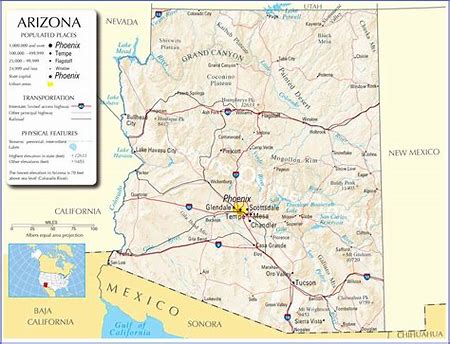
Krissa Lanham, who currently serves as the appellate chief in the U.S. Attorney’s Office for the District of Arizona, has been nominated for a seat on the U.S. District Court for the District of Arizona.
Background
Krissa M. Lanham received a B.A. summa cum laude from Yale University in 2002 and a J.D. from Yale Law School in 2007. Lanham subsequently clerked for Judge Robert Chatigny on the U.S. District Court for the District of Connecticut and then for Judge Barry Silverman on the U.S. Court of Appeals for the Ninth Circuit. Lanham subsequently joined the U.S. Attorney’s Office for the District of Arizona, where she has served since, including as Appellate Chief since 2020.
History of the Seat
Lanham is being nominated to replace Judge Douglas Rayes, who has announced that he will take senior status on June 1, 2024.
Legal Career
Other than her clerkships, Lanham has spent her entire career at the U.S. Attorney’s Office in Arizona. Lanham currently serves as Appellate Chief for the office and has handled many appeals before the Ninth Circuit. Among the cases she has handled, Lanham has:
- Argued to affirm the district court’s sentencing enhancement for obstruction of justice. The Ninth Circuit disagreed due to a lack of factual finding by the district judge and remanded for re-sentencing. See United States v. Castro-Ponce, 770 F.3d 819 (9th Cir. 2014);
- Persuaded the Ninth Circuit not to quash a grand jury subpoena to Glassdoor (represented by now Ninth Circuit Judge Eric Miller). See In re Grand Jury Subpoena, 875 F.3d 1179 (9th Cir. 2017);
- Defended the United States in a Federal Tort Claims Act suit alleging that the Federal Highway Administration caused the plaintiff’s father’s death. See Booth v. United States, 914 F.3d 1199 (9th Cir. 2019);
- Argued before the en banc Ninth Circuit in favor of a mandatory life sentence imposed upon the juvenile defendant for his role in a robbery that ended in murder. See United States v. Briones, 929 F.3d 1057 (9th Cir. 2019) (en banc);
- Argued to overturn a grant of habeas relief for a defendant sentenced under the Armed Career Criminal Act’s residual clause (later struck down by the Supreme Court as unconstitutionally vague). See United States v. Orona, 923 F.3d 1197 (9th Cir. 2019);
- Argued that a one-on-one communication can qualify as a “notice offering” child pornography under federal law. The Ninth Circuit agreed. See United States v. Cox, 963 F.3d 915 (9th Cir. 2020);
- Argued successfully before the en banc Ninth Circuit to affirm that Second Degree Murder can qualify as a “crime of violence” under the Armed Career Criminal Act. See United States v. Begay, 33 F.4th 1081 (9th Cir. 2022) (en banc);
- Argued successfully to reverse Judge James Soto’s disqualification of the entire U.S. Attorney’s Office from a series of prosecutions based on allegations of potential misconduct against one prosecutor. See United States v. Williams, 68 F.4th 564 (9th Cir. 2023).
Writings
Starting with her time as a law student, Lanham has written multiple articles on the law, particularly in international law. For example, as a law student, Lanham wrote a paper discussing the standards of appellate review in the ad hoc International Criminal Tribunals. See Krissa Lanham, “Elusive Abominations”: Standards of Appellate Review in the Ad Hoc International Criminal Tribunals, Int’l Law Research & Writing (Apr. 20, 2007) (available at https://openyls.law.yale.edu/bitstream/handle/20.500.13051/17759/Krissa_Lanham___Standards_of_Appellate_Review.pdf?sequence=2). Lanham also co-authored a report on the failure of the judiciary in Indian-Administered Kashmir to handle human rights claims. See Manav Bhatnagar, Krissa Lanham, and Bidar Sharma, The Myth of Normalcy: Impunity and the Judiciary in Kashmir, Allard K. Lowenstein International Human Rights Clinic (April 2009) (available at https://law.yale.edu/sites/default/files/documents/pdf/Intellectual_Life/Kashmir_MythofNormalcy.pdf).
More recently, Lanham has written to offer advice to advocates giving remote oral arguments during the Covid-19 pandemic. See Eric M. Fraser and Krissa Lanham, Remote Appellate Oral Arguments, Arizona Attorney (March 2021).
Political Activity
Lanham’s sole political donation of record is to Democratic Congressional candidate Lauren Baer in 2017, who was a classmate of Lanham’s at Yale Law School.
Overall Assessment
While Lanham’s entire legal career has been spent at the U.S. Attorney’s Office, she has racked up experience there on both the criminal and civil sides. Given this background, she will likely be comfortably confirmed to join the busy Arizona District Court.





